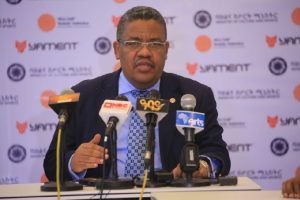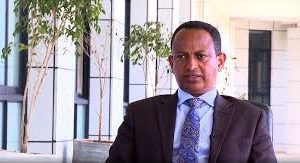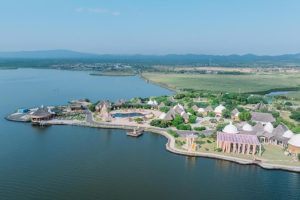
Educational institutions, national and international partners ought to join forces with pertinent government bodies to create a generation that embraces civic virtue and upholds the wisdom of the diverse people of the country, scholars comment.
If all stakeholders collaborate and offer the required resources to the new education roadmap, mainly designed by local experts, results would be harvested in six to eight years, says Dr. Tilaye Gete, who resigned his post as Minister of General Education recently.
The roadmap preparation, chaired by Deputy Prime Minister Demeke Mekonnen, participated 3.5 million people at various forums, is expected to equip the generation with the needed wisdom, skills and knowledge, he adds.
As higher education students have not been required to study courses like history and geography, most of the graduates are foreign to their country’s history and geography, he explains.
Worse even, students used to graduate high school before the age of eighteen. “But the new education roadmap has made students stay in school until the age of eighteen. This helps students to be matured, identify their professional interests, and get themselves ready for higher learning education and trainings.”
Hiwot Abera, a lecturer at Debre Birhan University also similar views. She hints that the past trend had been a misguided one for it has unnecessarily focused more on political matters than getting to the bottom of the country’s problems.
“The cultural assets of the different Nations, Nationalities, and Peoples of Ethiopia that possess effective indigenous wisdom have not made to play a positive role, to the desired extent, in creating harmony amongst the people.”
Unfortunately, as much has not been done in terms of familiarizing the youth with the country’s stunning cultural values, we are not able to reap the fruit of success.”
“As far as this, we have not created generations that know the cultural values of the country like the palm of their hands. At this point, the major actors behind killings are the youth.”
For instance, students who completed high school or university do not have an idea about the different values of the country to the extent needed, according to her.
She added that taking into account the benefits one secures out of the cultural values of the country, for the most part in solving conflicts, refocusing on civic virtue and cultural values will take the nation to a better place.
One should not expect a drastic change in the short term, provided that all the resources are there, the change may start bearing fruit in ten or twenty years, she says.
Regarding the time, Tilaye also buys the views of Hiwot. But if pertinent bodies are focused the period could be trimmed by half.
For his part, Associate Professor at Addis Ababa University, Abebaw Ayalew, says the political space managed to create doubts amongst the people of Ethiopia.
“The cultural values are not seen playing a fruitful role in finding a solution to current and emerging problems.”
He added, “There is no denying the fact that cultural assets cannot be created and developed by policy, political parties, constitution, and other similar issues but by the community alone. However, as time progressed, the well-known norms of the community washed off by political space.”
Above and beyond, politics has put half nelson on the arbitrary role of religious fathers and elderly people. In the past, politics did not play an influential role in the different Nations, Nationalities, and Peoples of Ethiopia.
But Tilaye says politicians and politics would no longer have involvement in the teaching-learning process. For instance, in the preparation of the history syllabus, propaganda will not have a place, he adds.
Moreover, moral education will be given to students from grades one to six at both public and private institutions, he says.
To him, teacher training systems, the education curriculum, school standards, and performance evaluation systems will be improved.
“I do hope the roadmap will help the nation harvest the fruit of success down the road,” he wrapped up.
Reports show that 540 million USD was obtained in loan and grant from international development partners to support the education system in the same period.
The Education Ministry is going to effectuate new curriculum. According to Eshetu Asfaw, Ministry’s Curriculum Development, and Implementation Director, the existing curriculum will be replaced and the new one will be put fully into effect in 2024. At the moment, quite a lot of fruitful works have been successfully carried out in this regard.
Aside from figuring out multiple problems that compelled total revision in the curriculum, strengths, and shortcomings of the existing curriculum had already been identified.
At the moment, inclusive curriculum design preparation, book preparation, and whatnot will see the light of day in three years. The groundwork is undertaken by professionals drawn from the different regions of the country including the two administrative regions. “As a matter of fact, at the moment, we have finished the inclusive curriculum design preparation which is the decisive one.”
The Ethiopian Herald January 10/2020
BY ADDISALEM MUALT





